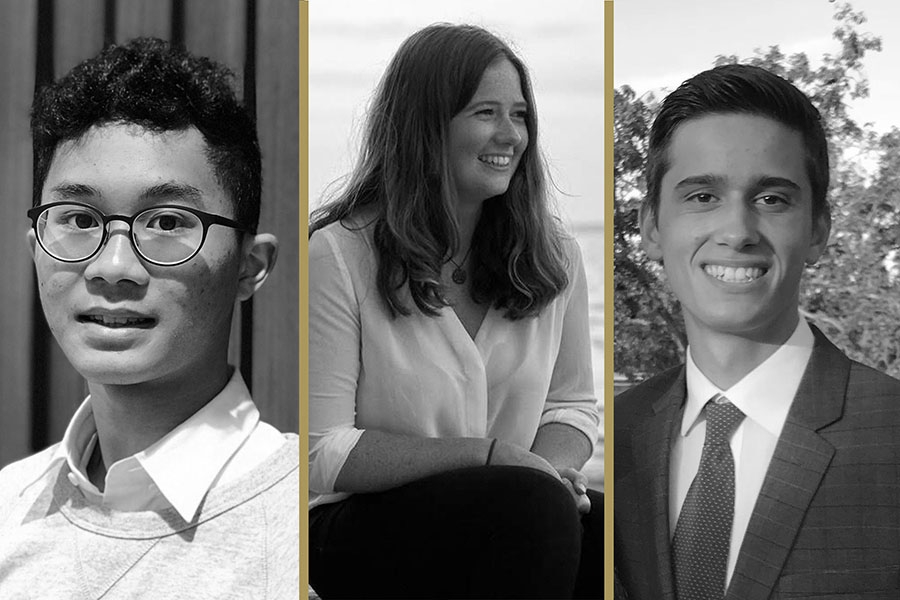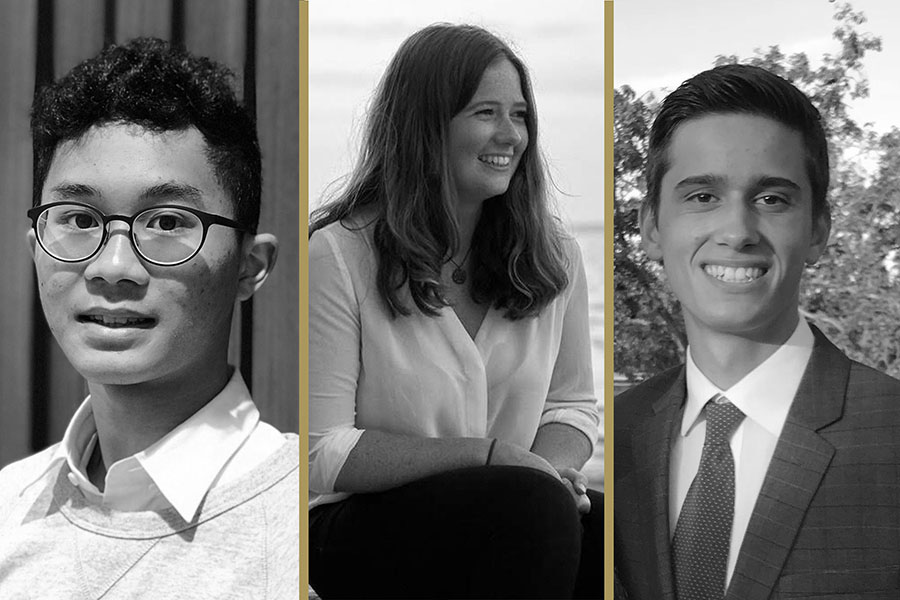
 |
| Left to right: Alex Ip, Abigail Crombie and Matthew Falcone. |
Three environmental engineering students were selected for the 2019 Millennium Fellowship, a joint leadership development program of the United Nations Academic Impact and the Millennium Campus Network, a global student network committed to advancing the United Nations Sustainable Development Goals.
The selective fellowship is a semester-long leadership program that will engage fellows through an experiential curriculum on cultivating core values, honing hard and soft skills, and sharing best practices.
Over 7,000 students applied to join the Class of 2019 on 1,209 campuses across 135 nations. Sixty-nine campuses worldwide—just 6 percent—were selected to host the 1,092 Millennium Fellows.
The cohort of 17 students at Georgia Tech includes Abigail Crombie, a third-year environmental engineering major with a global engineering leadership minor; Matthew Falcone, a third-year environmental engineering major; and Alex Ip, a second-year environmental engineering major.
Crombie says she believes strongly in the potential of young people to change the world.
“Winning this fellowship is really exciting to me because it’s a chance to be connected to people that have similar goals and ambitions to make a difference in the world and in the community around us,” Crombie said. “I’m really looking forward to making connections with people working for such a broad-reaching organization that has such potential to do good in the world.”
Falcone says that as someone who has grown up acutely aware of the challenges associated with global climate change, this fellowship offers a way to take action.
“I believe the UN’s Sustainable Development Goals will put our planet on a better path to mitigate the potentially drastic consequences of climate change,” Falcone said. “The work can set the foundation for future generations to pursue a sustainable future for our planet.”
Ip, who created a website to share scientists’ stories, believes that storytelling can build bridges. He is looking forward to connecting with other young people who are committed to creating social impact.
“Scientist storytelling is an important and powerful tool to bring people together and show the human side of scientists. In the long term, it helps unlock many of the United Nations Sustainable Development Goals and enable us to create a society where research and narratives come together to bring forward progress.”
Related Links
